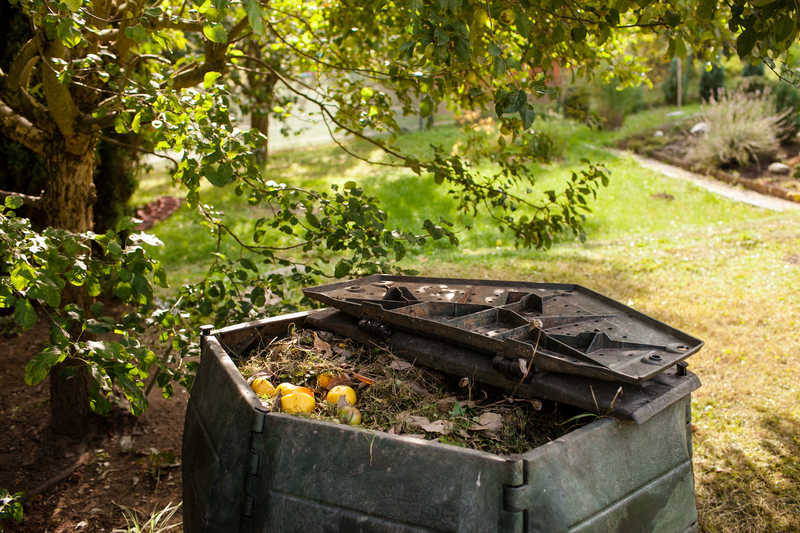Understanding Hard Rubbish and Its Impact
Hard rubbish, also known as bulky waste or large solid waste, refers to oversized items that are not suitable for regular waste collection due to their size or nature. This category often includes furniture, mattresses, electronics, and large appliances. Understanding the nature of hard rubbish is essential for effective management and disposal.

Defining Hard Rubbish
Identifying hard rubbish can sometimes be challenging, as it encompasses a wide variety of items. Typically, it includes non-hazardous waste products that cannot be compacted effectively in standard garbage collection processes. Common examples of hard rubbish include:
- Old couches and armchairs
- Broken wardrobes and tables
- Outdated kitchen appliances like stoves and refrigerators
- Damaged mattresses and bed frames
- Electronic waste such as televisions and computers
The need for specialized disposal methods arises due to their bulkiness and the potential for recycling or repurposing certain materials.
The Importance of Proper Hard Rubbish Disposal
Proper disposal of hard rubbish has several benefits including environmental protection, resource conservation, and community health safety. Many items categorized as hard rubbish contain recyclable components that, if not managed correctly, can contribute to increased landfill waste and environmental degradation.
Effective hard rubbish disposal methods help reduce the volume of waste sent to landfills, lower pollution levels, and encourage the sustainable use of resources through recycling initiatives. Additionally, it prevents illegal dumping, which can pose hazards to local ecosystems and neighborhoods.
Common Methods for Hard Rubbish Disposal
There are several methods to dispose of hard rubbish responsibly. Understanding these options can help individuals and organizations make informed decisions when dealing with bulky waste items:
Council Collection Services
Many municipalities offer a hard rubbish collection service either at specific times of the year or through scheduled pick-ups. These services are often free or require a small fee and provide a convenient way for residents to dispose of large waste items without transporting them.
When using council services, it is important to follow the guidelines provided. This often includes placing items curbside for collection on designated days and ensuring that items are separated accordingly for easy sorting and recycling.
Recycling and Reuse Programs
Many parts of hard rubbish can be recycled or repurposed. Community recycling centers or non-profit organizations often run programs designed to deconstruct and recycle such items. For example, metals from appliances can be melted down and reused, while wood from furniture can be repurposed in different forms.
Donating usable items to charities or community groups can also extend the lifespan of furniture and appliances, providing valuable resources to those in need.
Private Waste Disposal Services
For those seeking convenience or needing immediate disposal, hiring a private waste disposal company is an effective option. These companies offer personalized services for the removal and disposal of hard rubbish and often take care of sorting items for recycling.
While this option may come at a cost, it provides homeowners and businesses with a hassle-free solution for managing large amounts of bulky waste.
Environmental and Health Considerations
It's imperative to understand the environmental and health implications of improper hard rubbish disposal. Large items made from synthetic materials or containing chemicals can release toxins if not disposed of correctly. Electronic waste, in particular, is known for its adverse environmental impact if not recycled properly, often containing substances like lead and mercury.
By adhering to proper disposal methods and recycling initiatives, communities not only protect the environment but also promote healthier living conditions by reducing pollution and mitigating the harmful effects of waste.

Future Trends in Hard Rubbish Management
Recent innovations in waste management are aimed at improving hard rubbish disposal and enhancing sustainability. Emerging trends include:
Smart Waste Management Technology
Technological advancements are paving the way for smarter collection and recycling processes. Systems equipped with sensors and AI are increasingly being used to optimize collection schedules, improve sorting processes, and increase recycling efficiency. Such advancements hold promise for minimizing human error and increasing resource recovery rates.
Community Engagement and Education
Effectively managing hard rubbish requires active participation and collaboration between local authorities, communities, and waste management professionals. Education programs focused on sustainability and environmental responsibility empower individuals, helping them better understand the consequences of waste and their role in fostering a healthier planet.
Repurposing and Upcycling Initiatives
The concept of upcycling--transforming waste into new products or applications--continues to gain popularity as part of a broader trend towards sustainable living. Creative initiatives encourage individuals to rethink the potential of old items and explore new applications before considering disposal.
Conclusion
Understanding the nature of hard rubbish and implementing effective disposal methods are essential steps towards a sustainable future. By embracing responsible waste management practices, we can significantly reduce landfill contributions, conserve resources, and promote a cleaner and more sustainable environment. Whether through council services, recycling, or innovative repurposing, every effort counts in the battle against waste mismanagement.
As communities become more aware and engaged, the vision of zero waste becomes increasingly achievable, highlighting the importance of informed decision-making and cooperative efforts in disposing of hard rubbish.